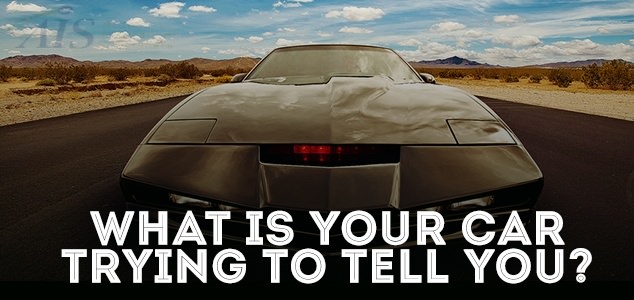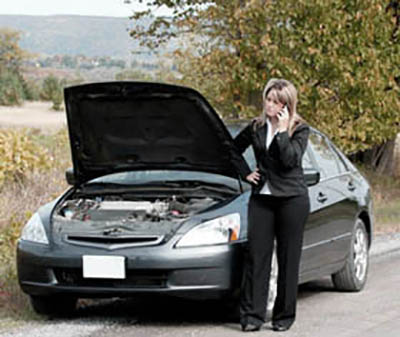Our automotive vehicles, like our physical vehicles, communicate impending breakdown to us through symptoms. Symptoms can often be attributed to more than one underlying problem, and making accurate diagnoses takes time, skill, and experience. With our cars, as with our bodies, it behooves us to pay attention to the early warning signs that indicate something is just not right in order to avoid a more serious, more costly, intervention down the road.
Today’s complex cars contain many interconnected, interdependent systems and moving parts so a strange sound should be heard as an early warning sign that all is not well. Here are some of the most commonly heard noises and the possible underlying causes that they point to:
Damaged Belt
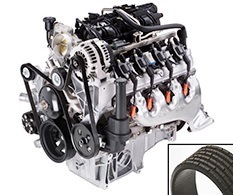 Squeaking or squealing under the hood is typically due to a worn, damaged, or loose fan or air-conditioning compressor belt. Aging belts stretch, become loose, and lose traction on the underside. Because the belt is not able to move at the same speed as the pulleys that control it, the slippage causes that ear-splitting screech upon starting the engine.
Squeaking or squealing under the hood is typically due to a worn, damaged, or loose fan or air-conditioning compressor belt. Aging belts stretch, become loose, and lose traction on the underside. Because the belt is not able to move at the same speed as the pulleys that control it, the slippage causes that ear-splitting screech upon starting the engine.
Worn Brake Pads
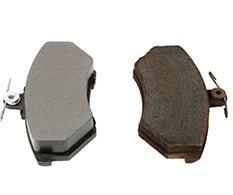
Metallic screeching, scraping, or grinding from the brakes can be a sign of worn brake pads. Today’s pads are designed with a band of metal that becomes exposed at the end of a pad’s life cycle. If the screeching has turned into scraping and grinding, that usually indicates the bare metal band is rubbing against rotor metal. You will need new brake pads and perhaps new rotors since every application of the brakes is damaging the rotors.
Leaking Vacuum Lines
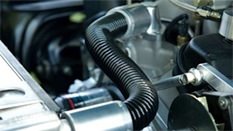 Hissing or sizzling under the hood when you turn the engine off means something is leaking onto the hot engine, most likely oil or coolant. You probably have a split, leaking vacuum line. This will trip the “Check Engine†light to alert you that the lines need replacing.
Hissing or sizzling under the hood when you turn the engine off means something is leaking onto the hot engine, most likely oil or coolant. You probably have a split, leaking vacuum line. This will trip the “Check Engine†light to alert you that the lines need replacing.
Low Steering Fluid

Groaning while turning the steering wheel is usually a sign that your power steering fluid level is low, often caused by a leak. If you hear sounds when turning corners, the steering linkage may need lubricant or replacement if damaged. Rapid clicking while turning is commonly a worn-out axle joint. If you hear thunking while turning corners, a CV joint is loose and the grease has leaked out or the joint is worn and due for replacement.
Blown Exhaust Gasket
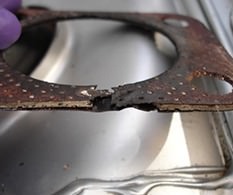 Blowing air sounds under the hood, most noticeable when idling, means the exhaust manifold gasket has failed and hot exhaust gases are venting into the air. These corrosive, carbon monoxide gasses are dangerous to the manifold and to you. Seek repair before the gasses eat a hole through the manifold or cause you to black out!
Blowing air sounds under the hood, most noticeable when idling, means the exhaust manifold gasket has failed and hot exhaust gases are venting into the air. These corrosive, carbon monoxide gasses are dangerous to the manifold and to you. Seek repair before the gasses eat a hole through the manifold or cause you to black out!
The information in this article was obtained from various sources. This content is offered for educational purposes only and does not represent contractual agreements, nor is it intended to replace manuals or instructions provided by the manufacturer or the advice of a qualified professional. The definitions, terms and coverage in a given policy may be different than those suggested here and such policy will be governed by the language contained therein. No warranty or appropriateness for a specific purpose is expressed or implied.
